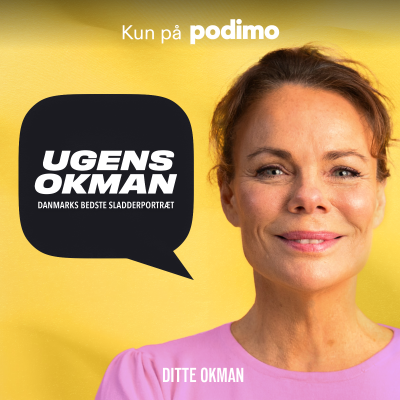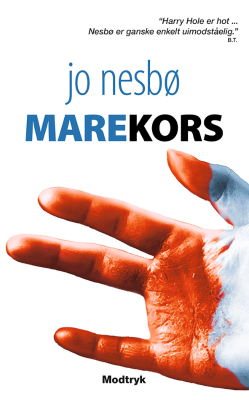
Talking Indonesia
engelsk
Nyheder & politik
Begrænset tilbud
1 måned kun 9 kr.
Derefter 99 kr. / månedOpsig når som helst.
- 20 lydbogstimer pr. måned
- Podcasts kun på Podimo
- Gratis podcasts
Læs mere Talking Indonesia
In the Talking Indonesia podcast, Dr Jemma Purdey, Dr Jacqui Baker, Tito Ambyo and Dr Elisabeth Kramer present an extended interview each fortnight with experts on Indonesian politics, foreign policy, culture, language and more. Find all the Talking Indonesia podcasts and more at the Indonesia at Melbourne blog.
Alle episoder
277 episoderDirty Vote II o3 - Zainal Arifin Mochtar
Cast your minds back to February 2024, in the campaign lull before Indonesians hit the ballot box, a documentary unceremoniously dropped on youtube. Now, documentaries on electoral campaigning are legion, and generally they attract a pretty narrow audience. By contrast, Dirty Vote, directed by acclaimed Indonesian investigative journalist, Dhandy Dwi Laksono, garnered 6.4 million eyeballs in the first 48 hours, over the week Dirty vote attracted half a million tweet on twitter, trending worldwide. Overall Dirty Vote had over 30 million viewers. So to say Dirty Vote went viral would be putting it mildly. And yet Dirty Vote was anything but ephemeral. In a large warehouse, against what was a essentially a giant power-point deck, three nationally renowned Constitutional lawyers, Bivitri Susanti, Feri Amsari and Zainal Arifin Mochtar systematically laid out the case for a critical double take on how key figures, principally then- President Jokowi, were using all the instruments of the state to ensure the 2024 national election would be won by his anointed successor, Prabowo Subianto. This included Bansos, or social welfare payments, the use of police to pressure and criminalise village heads and opposition figures, and of course, the Supreme Court decision’s overturning the election law to allow Jokowi’s son, Gibran Rakabuming Raka to run as VP. Now that team is back, with their sequel Dirty Vote two, and they are here once again to methodically unpack the consolidation of the Prabowo regime. My guest today is Dirty Vote presenter, Dr Zainal Arifin Mochtar, Professor at the faculty of Law at the Gadjah Mada University. Pak Zainal has been involved in the establishment and running of number of research centres, including Pukat Korupsi UGM, the Centre for Anti-Corruption Studies, Caksana Institute and the Administrative Law Society. He also serves on the board of the Partnership for Governance Reform and has won numerous awards over his career, including the Muhammad Yamin Constitution Award in 2016 and the Best Constitutional Law writer from the Constitutional Court in 2018. You can find Dirty Vote 2 here: https://www.youtube.com/watch?v=895Cqij7i00
Irma Hidayana - Free Nutritious Meals Program
Irma Hidayana - Free Nutritious Meals Program by Talking Indonesia
Egi Primayogha - Corruption in Prabowo-Gibran's first year
Corruption is always a hot topic in Indonesia, but where does the situation stand right now? In this episode, we talk to Egi Primayogha who is the advocacy coordinator for the NGO Indonesia Corruption Watch (ICW) about their assessment of the current government and their recent report entitled Catatan Kritis (or critical notes) on the first year of the Prabawo-Gibran government. ICW was formed in 1998 and, unfortunately, their role in keeping the government accountable is as important as ever. The report highlights a number of areas of concern, many of course are not new in Indonesian politics. The impact of dynastic politics, patronage driving cabinet appointments and the lack of oversight that the parliament is having over government policies and activities are all mentioned as ongoing issues. The report also looks more closely at corruption and lack of accountability in the Free Healthy Meal Program, known as Makanan Bergizi Gratis or MBG, which has been in the news recently for large numbers of students being struck with food poisoning. All in all, the report is a reminder that democracy is tough road with many obstacles and civil society groups like ICW are crucial for keeping corruption and transparency in the spotlight. Our guest today, Egi Primayogha is a member of Indonesia Corruption Watch with more than 10 years of experience leading investigations, research, and advocacy to promote transparency and accountability. His work focuses on state capture, politico-business corruption, and the intersection of governance and climate issues. Image used with permission, Indonesia Corruption Watch.
Dian Tri Irawaty - Kampung and Urban Advocacy
Dian Tri Irawaty - Kampung and Urban Advocacy by Talking Indonesia
Grace Leksana - A Re/writing History Project
A ‘re’-writing history project - Grace Leksana Shortly after taking up his position as the Minister for Culture and Education in the Prabowo government, Fadli Zon announced he was commissioning a reworking of the official Indonesian history textbook. In early 2025, outlines of the project’s terms of reference started to trickle out, and historians, activists and survivors’ groups grew increasingly concerned. The new version, assembled without broad consultation, contained a raft of significant changes and glaring omissions, including human rights violations carried out by the New Order, and the roles of women at various stages in Indonesia’s pre- and post-independence past. Moreover, Minister Zon was determined to deliver the new book in time for the celebration of Indonesia’s 80th anniversary of independence on 17 August. That deadline has now passed but the project remains in progress. What and who was behind this ‘rewriting’ history project? What were their motives? What ‘red flags’ most alarmed historians and others, and ultimately what can be done to resist and possibly reverse the course of this project? In this week's episode Jemma chats with Grace Leksana an Assistant Professor in Indonesian history in the Cultural History section of Utrecht University. Grace is author of Memory culture of the anti Leftist violence in Indonesia: Embedded Remembering (Amsterdam University Press, 2023). She is a member of the Indonesian History Openness Alliance (AKSI). In 2025, the Talking Indonesia podcast is co-hosted by Dr Jemma Purdey from the Australia-Indonesia Centre, Dr Jacqui Baker from Murdoch University, Dr Elisabeth Kramer from the University of New South Wales and Tito Ambyo from RMIT.
Vælg dit abonnement
Begrænset tilbud
Premium
20 timers lydbøger
Podcasts kun på Podimo
Gratis podcasts
Opsig når som helst
1 måned kun 9 kr.
Derefter 99 kr. / måned
Premium Plus
100 timers lydbøger
Podcasts kun på Podimo
Gratis podcasts
Opsig når som helst
Prøv gratis i 7 dage
Derefter 129 kr. / month
1 måned kun 9 kr. Derefter 99 kr. / måned. Opsig når som helst.

































